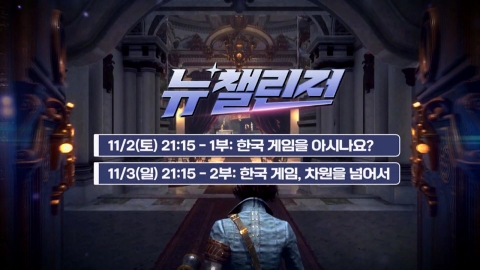■ Broadcast: YTN Radio FM 94.5 (20:20-21:00)
■ Air date: November 2, 2024 (Saturday)
■ Host: announcer Choi Hwi
■ Dialogue: Kim Un-kyung, Director of the Human Rights Research Institute for Media and Human Rights
* The text below may differ from the actual broadcast content, so please check the broadcast for more accurate information.
◇ Announcer Choi Hwi (hereinafter referred to as Choi Hwi): Time to chew through the news for a week. It's media criticism. Today, I'm on the phone with Kim Un-kyung, director of Moncler Media Human Rights Research Center. Dear director, how are you?
◆ Kim Eon-kyung, Director of the Human Rights Research Institute of Mungle Media (hereinafter referred to as Kim Eon-kyung): Yes, hello.
◇ Choi Hwi: Last Tuesday was the second anniversary of the Itaewon disaster. Today, we will talk about reports on the Itaewon disaster. You're going to criticize the Itaewon disaster? What is it about?
◆ Kim Eon-kyung: I conducted monitoring on the Itaewon disaster with young people this year. I didn't do it personally. 4. It's a foundation-affiliated organization called the Disaster Victims Rights Center. We recruited someone to join the disaster report monitoring team here and conducted monitoring with 12 young people for about three months from July. I gave a lecture there together, and I also wrote monitoring planning, progressing, and reports together. Since the second anniversary of the Itaewon disaster was approaching on October 29, we released three report monitor reports related to the Itaewon disaster. It's a bit long to tell you all these three in detail on today's broadcast. So I'm going to make it as simple as possible to deliver it centered on the core content. First of all, we analyzed editorials related to the Itaewon disaster in the top 10 daily newspapers for 20 months after the Itaewon disaster. Big Kines, a news big data service run by the Korea Press Promotion Foundation, targets articles from October 30, 2022 to June 30, 2024 in 10 general daily newspapers, including Kyunghyang, Dong-A, Culture, Seoul, World, Chosun, JoongAng, Hankyoreh, and Korea. There are keywords related to the Itaewon disaster, Itaewon disaster, 10.29 disaster, Halloween. I've picked all the related editorials with all the keywords. Looking at the editorial, I only selected cases that were clearly related to the Itaewon disaster in the context of the title or content. So, if the Itaewon disaster went in just one word on the sidewalk, these things are excluded. When I picked out only the editorials that contained the Itaewon disaster as the main content, a total of 453 editorials came out. The most frequently editorialized newspaper was Kyunghyang Shinmun, which reported 72 cases. Next, the Hankyoreh reported 64 cases and Hankyoreh 62 cases. In this way, the newspaper with the fewest related editorials was the Munhwa Ilbo, which reported 21 cases.
◇ Choi Hwi: If there are 453 editorials related to the Itaewon disaster in 10 newspapers in 20 months, that's quite a lot. You've analyzed this. By what criteria did you analyze the editorial?
◆ [Kim Eon-kyung] We've classified the editorial into six frames. When analyzing, I first looked at the title, but there were cases where it was ambiguous to judge by the title alone, but in this case, we read the contents and judged together. First, we saw the "responsible attribution" frame. In the case of such editorials, which mainly focused on investigating the responsibility for the disaster or inferring the cause, it was judged as a frame of "responsibility attribution". The cause of the disaster is classified as a victim of the disaster, fire fighting, police, local government heads, the Ministry of Public Administration and Security, the government, the prime minister, the president, and any kind of editorial that considers someone responsible for the disaster. Second, there is an editorial in the frame of "human interest." These editorials included editorials that were mainly focused on describing people's emotional aspects, such as their emotions, anger, and sympathy. And thirdly, there is an editorial of the "conflicting news" frame. In the case of an editorial describing the conflict between interested parties such as individuals, groups, and governments in relation to the disaster, it was included here. These editorials were included when describing conflicts between the two sides, such as conflicts over memorial spaces, conflicts over fact-finding, or disclosure of the list of dead in this case, and controversies related to the announcement of the list of victims. Fourthly, there is a 'moral news' frame. In the case of this frame, it was included in the case of pointing out the actions of those involved in the Itaewon disaster focusing on moral and ethical issues. In particular, among the remarks and actions of the police, the government, and the bereaved families, it was included in this case when they pointed out that "Your behavior is problematic" morally and ethically, not legally. However, problems such as online hate expressions, personal attacks, and malicious comments were mainly included in the frame. Fifth, there is an 'economic news' frame. It is included in the frame here if the editorial is written around how this disaster has resulted in an economic aspect. Sixth, there was a "Problem Solving" frame. It is a frame that describes how to solve problems after an accident and how to establish countermeasures in our society. These are reports that focus on what kind of system is needed to prevent recurrence in the future. For example, the Basic Law on Life Safety is needed. A special law or special investigation committee for the Itaewon disaster is needed. ’ speak one's back very clearlyIn the case of editorials emphasizing the need for fact-finding and safety measures, we have classified them in this frame. For 20 months, all editorials related to the Itaewon disaster have been classified as somewhere in these six frames. Which frame do you think had the most?
◇ Choi Hwi: There was also a conflict between the ruling and opposition parties regarding the Itaewon disaster. In addition, as there was a conflict between the bereaved family and the government, I think the frame of "conflicting news" must have been the most common. How is it?
◆ [Kim Eon-kyung] I also thought that a little bit at first and I thought that would have been the case in reality. I don't think I had much expectation for the media. Overall, however, the "responsible attribution" frame accounted for the most 39.5% of cases with 179. This seems to be because there were so many editorials with a frame of attribution of responsibility, with the Hankook Ilbo 35 cases, the Kyunghyang Shinmun 32 cases, and the Hankyoreh 29 cases. And the reason why there are so many reports like this. This is because there were so many critical editorials about the failure to prevent the disaster even though there were reports of citizens' crushing right after the disaster occurred. However, as time goes by, reports of a slightly conflicting news frame begin to increase due to conflicts between bereaved families and task force calling for fact-finding, opposition parties, and the government and the ruling party, which dismiss it as a political dispute. So, as you said earlier, there are 137 reports of the "conflicting news" frame. This is the second highest amount of coverage at 30.2%. And the third most frames are 'moral news' frames. This is 65 cases, accounting for 14.3%. I think this figure shows that there were many cases of avoiding responsibility or harsh words related to the Itaewon disaster. And what I thought was very disappointing was that there were 59 "problem solving" frames, 13.0%, which is very small. In fact, the more problem-solving frames there are, the more information such as the need for the Itaewon disaster special law came out. And in fact, I think this was the most needed editorial. Because we have to talk about how our society should go in the future. It is regrettable that this content was not a very high proportion. Finally, there are few editorials in the frame of "human interest" or in the frame of "economic news" because it is an analysis only targeting editorials. There were about one or two cases. I can tell you this.
◇ Choi Hwi: So you said that the most common editorial of the "responsible attribution frame" was to blame for the disaster. While analyzing the editorial, did you see how our newspaper named the Itaewon disaster in detail?
◆ Kim Eon-kyung: Yes. Most of the newspapers call it the 'Itaewon disaster'. 390 cases, or 86.1% of the reports, were just named the 'Itaewon disaster'. There was a social consensus that we should call this the 10.29 Itaewon disaster. But there is a property that newspapers try to reduce the number of words as much as possible. As a result, it was extremely rare to use the expression 10.29 Itaewon disaster. Everyone was calling it the "Itaewon disaster". On the other hand, the problem is that there are still names with the expression 'Halloween'. These expressions account for 13.7% of 62 cases. The media company that used this expression the most was the Chosun Ilbo, which used 16 cases only in the case of editorials. For example, the title is "Halloween Prevention Act drifting, the public consciousness remains the same, but the ruling and opposition parties are only engaged in political strife." While mentioning the Itaewon disaster, I always use the word Halloween. This gives a nuance that the disaster was caused by the Halloween festival culture introduced in this foreign country. It continues to give such an image that the cause of the disaster is attributed to individual citizens who participated in the Halloween festival. To put it more seriously, the use of these expressions due to images such as entertainment or promiscuity read in the word Halloween may be controversial for secondary harm to victims. Above all, after the establishment of the bereaved family council, the name of the disaster demanded by the bereaved family and the victims clearly existed. That's what became the expression '10.29 Itaewon disaster'. I think it is very unfortunate that we continue to use the term "Halloween" despite the fact that this name definitely exists.
◇ Choi Hwi: You said you conducted three monitoring, so can you briefly explain what else it is about?
◆ Kim Eon-kyung: On January 9, 2024, the Itaewon Disaster Special Act was passed by the National Assembly plenary session. However, on January 18th, the power of the people proposed the president to exercise his veto, and on the 30th, the president approved the veto. We first looked at the amount of coverage and reports during this period from January 9 to 30 when the Itaewon Special Act passed the National Assembly plenary session to just before the veto was exercised. And I looked at some reports for a week from the day President Yoon exercised his veto. At this time, we couldn't afford it anymore, so we narrowed down the target to only six comprehensive daily newspapers. According to the media coverage from January 9th to 30th, the trend was the highest with 45 cases. There were 19 Hankyoreh cases, 17 Hankyoreh cases, 14 JoongAng Ilbo cases, 12 Dong-A Ilbo cases, and 6 Chosun Ilbo cases. That's how I reported it. I had an interview with the bereaved families of the Itaewon disaster. When I told them, "What was the most disappointing thing about the media?" what everyone said was that the media was so indifferent. Especially during this period, they cried and pleaded not to exercise their veto power on the streets while enduring the cold and snow rain in the really cold winter. At that time, the media did not report so much that it was so sad. The indifference was so upsetting. You've said these things before. So I thought, "Was that really true? Actually, I didn't check the amount of coverage like that at the time. However, looking at the actual amount of coverage, I could see that the amount of coverage was really small.
◇ Choi Hwi: Yes. On the second anniversary of the Itaewon disaster, you criticized the related report. Thank you for your words today. Thank you.
◆ Kim Eon-kyung: Thank you.
◇ Choi Hwi: This has been with Kim Eon-kyung, director of the Human Rights Research Institute of Media.
[Copyright holder (c) YTN Unauthorized reproduction, redistribution and use of AI data prohibited]
Politics
More- North Korea's 'self-destructive drone' is interested in power... "Possible to be included in Russian troop dispatch."
- President Yoon is halfway through his term..."Goblin Road" throughout November.
- The beginning and the end... "Mrs. Kim"...35 Accompanied Orders are the highest ever.
- [Open Radio] Why is Rosé and Bruno Mars' "Apartment" going crazy overseas?
![[Open Radio] 10.29 The 2nd anniversary of the Itaewon disaster, how did the media capture it?](https://image.ytn.co.kr/general/jpg/2024/1103/202411030251122422_d.jpg)
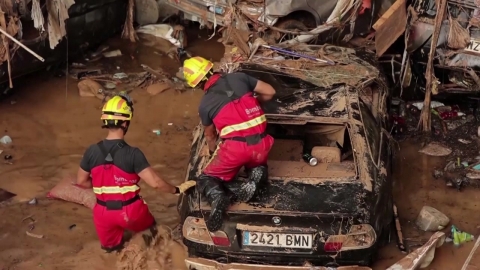
![[Exclusive] Son who hid his father's body in the freezer for more than a year..."Property issues".](https://image.ytn.co.kr/general/jpg/2024/1103/202411030000439902_h.jpg)
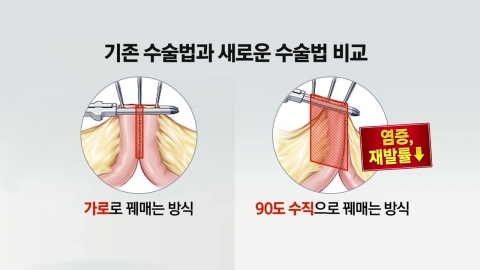
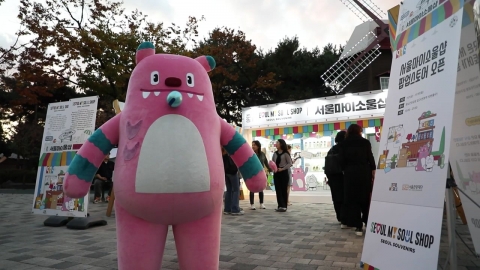
![[Yetterview] Kepler "Re-signing the 7-member team, bond stronger..."I'm going to meet Kaplian all over the world".](https://image.ytn.co.kr/general/jpg/2024/1102/202411020800021793_h.jpg)
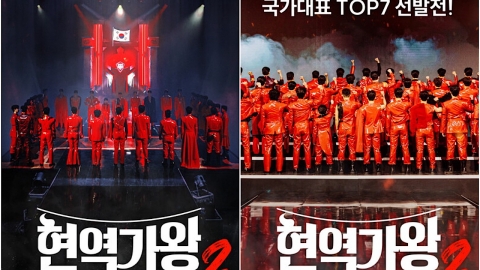

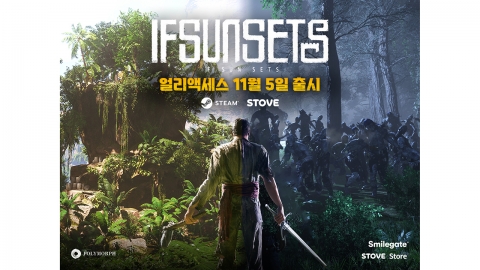
![[Gamterview] "What's important is creative perfection..." Game company "Double Stroke and Lunosoft."](https://image.ytn.co.kr/general/jpg/2024/1101/202411011440172568_h.jpg)
